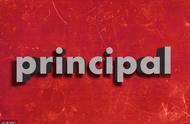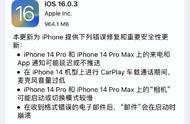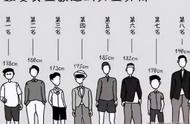The words principle and principal are pronounced in the same way but they do not have the same meaning.
Principle和principal发音相同并且都是名词,但是它们的意思却完全不同

Principal
Principal is a noun meaning chief or head.
principal是一个名词,意为“首领”或“领导”。
The principal of the middle school was strict but kind.
这所中学的校长很严厉,但也很和蔼。
It can also be an adjective meaning highest in rank:
它也可以是一个形容词,意思是“最主要的”。
The president plays the principal role in governing the country.
总统在治理国家中起着主要作用。
Principle
Principle is only a noun and generally refers to a natural, moral, legal rule or standard.
Principle只是一个名词,一般指自然的、道德的、法律的规则或标准。
Students must follow the basic principles of good behavior.
学生必须遵守行为准则。
Remember the Difference
A great way to remember the differences between principle versus principal is found in the last three letters of each word.
记住principle和principal的区别的一个好方法主要在每个单词的最后三个字母。
Someone who is a “princi-P-A-L” should be looked at as your “pal.” Only people can be “pals” and principal refers to people, whereas “princi-P-L-E” refers to truths, rules, or standards. A truth or standard cannot be your “pal.”
“princi-P-A-L”应该被视为你的“pal(朋友)”。只有人可以成为“pals”,principal指的是人,而“princi-P-L-E”指的是真理、规则或标准。真理或标准不能成为你的“pal”。
You can also remember the mnemonic, “The principal has his principles.”
你也可以记住这样一句话:校长有他的原则。
,










